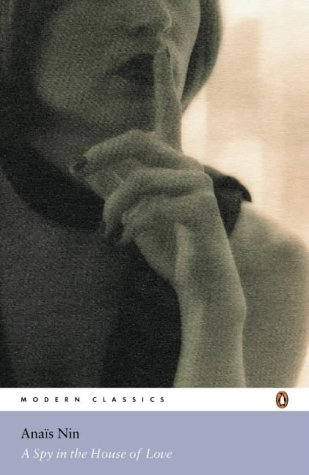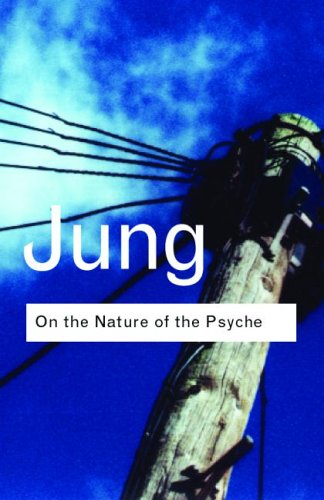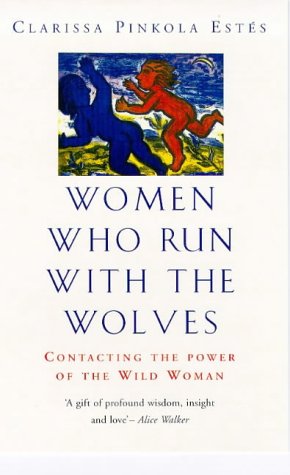It is Sunday and I am at the giant Toy Mart
shopping for a present for my daughter. She will be
ten in a couple of days, but I am less than
enthusiastic about my task. I can remember very
clearly what I wanted at her age, but she is
different. I want her to be the dreamy child I was,
leading a secret inner life so much richer than the
drab reality allotted to me. I want to see myself in
her, I want to share her inner world by virtue of a
silent sympathy between us. But I know this cannot
be. Her world is so full of colour and sound and
sensory stimulation, the fantasies so blatantly
spelled out all around her that she has no need to
retreat into her imagination. It makes me sad; I feel
that she has been deprived of something valuable.
I wander toward the books, some familiar
from my childhood. We had Babar in Hungarian, and of
course Anderson�s fairy tales with their timeless
illustrations. I used to copy the pictures with my
anaemic coloured pencils, never satisfied with the
results. My drawings looked pale, washed out, barely
a shadow of the original.
I was colour deprived as a child. I
suppose we all were. We lived our lives in black and
white, or rather shades of gray like the old
television shows. Not that I had any idea what
television was. My friends and I spoke of it as one
of those magical things that existed only in America,
a magical place beyond our imagination. At home
everything was gray, the sidewalks and buildings with
their gaping wounds that had never been closed after
the war; even the snow was sooty from the buses that
belched clouds of black smoke behind them. Overcoats
came only in black and gray, making it hard to
distinguish people on the street. It was not good to
stand out, to draw attention to yourself, especially
if you weren�t a good communist. It seemed like the
only approved color was red, as in the kerchiefs we
reluctantly wore to Young Pioneer meetings, and the
star that blinked incongruously above the parliament
building. My father always wore a dark gray suit that
was threadbare and shiny at the elbows and my mother�s
everday skirt was gray with mere hints of colour woven
into the fabric. She once told me that when my father
fell in love with her she had been wearing an apple
green ball gown made of silk that swished as she
danced. That dress captured my imagination and I
dreamed about it, seeing my mother in all the colours
that must have painted her world in that long ago
time. I thought that by the time I was born, God must
have run out of paint.
I pause at the aisle with the pencils,
paints, magic markers and of course the crayons. I
will never forget the day I discovered crayons. The
package from America arrived on a Saturday. It was
occasion for great excitement, a rare glimpse of the
western world. I was on the afternoon school shift so
I hadn�t left for school yet. News travelled fast in
our building and several neighbours came to watch the
unwrapping. Packages from America were infrequent,
and occasion for celebrating. The box had obviously
been opened. The paper was torn and the twine loose,
but this didn�t lessen our excitement. The tin of
cocoa had spilled, it had obviously been checked for
contraband and hastily closed. Everything had a
sweetish smell, lending the contents an exotic flavour.
There was a dress for me that had been outgrown by my
cousin. It was pink with blue scallops and looked
like a dress I had seen in a painting. There was a
teddy bear for my brother and a giant bar of Hershey�s
chocolate. I don�t remember much more about it except
for the box of crayons. At that time we didn�t have
crayons in Hungary. When I opened the box the colours
dazzled my eyes. They were nothing like the washed
out hues of my pencils that gave up their frugal
colours to the paper reluctantly. When I pressed on
the pencils too hard the lead would break, reminding me
of their limitations. The crayons were thick and
rich, and they left satisfyingly broad marks on the
paper. There were twelve in the box, each providing
me with a colour that was mostly missing from my world.
I looked at them for a long time, held them in my
hand, lined them up in neat rows on the paper. I
practically drooled over the lush colours that until
then had existed only in my fantasies. I knew I would
have to use them sparingly, for when they were gone,
there would be no more.
I was a remarkably disciplined child, so I
limited myself to using them only on Sundays. I
decided that I would draw something every Sunday and
colour it with all the colours I could think of.
Sundays had always been special, sometimes for the
things that happened on that day, sometimes for the
feelings they elicited from me. Ever since I was very
young I thought of feelings in terms of colours. I
couldn�t explain why, but whenever a particular
feeling came over me I would close my eyes and wait
for the colour that began to shimmer at the corners of
my eyelids. The colour would expand and fill my inner
vision until my emotions became inseparable from it.
Sundays meant midday dinners with my
father, smelling the delicious aroma of meat eaten
once a week, feeling secure in the presence of both my
parents at the dinner table. Sundays meant going for
walks with my father in the hills of Buda, warm autumn
mornings spent catching small lizards that sunned
themselves on the rocks among the villas. Some Sunday
afternoons the strains of a violin drifted through our
window and we would step out to the corridor that
looked down into the courtyard where a beggar played
with upturned face. I sometimes wondered why someone
who could move my mother to tears with his music
needed to beg for his food. My father always threw
him a few coins although there was little to spare,
and my mother gave him a thick slice of bread spread
with lard. These Sundays had the colour of lemon and
vanilla and a touch of deep violet. I�d listen to the
violin play a wistful tune as I coloured my pictures
with a tinge of longing.
There were other Sundays filled with
excitement as we prepared to leave for the country at
the beginning of each summer. These were sleepless
Sundays as I waited impatiently for dawn to begin our
train journey. My anticipation had the colour of
golden wheat and red poppies and swirling smoke that
dissolved into the summer sky. Sundays in the country
were pungent with barnyard smells, earth and dung,
sweet hay and cool adobe walls. They evoked the colour
of honey and shades of crumbled soil falling through
my fingers. Then there were Sundays when we visited
my grandmother in her apartment where she had lived
with my grandfather. It was quiet in the dark rooms
and cold. The ceilings were very tall and the velvet
drapes always remained closed. My grandfather�s
portrait dominated one wall, the meagre light barely
illuminating his severe features. The shadows gave
him a brooding, inaccessible look. I never knew him
but always felt that he was watching me. The air was
close in that room and I was glad when we left. Those
visits had the colour of maroon and dark moss, colours
to fall into and disappear in.
I remember one special Sunday when my
brother was born. It was supposed to be a happy day,
my father said, for now I had a little brother to care
for and play with. But I was only three and all I
could think of was that my mother was gone and I
wouldn�t see her for a long time. They told me she
would be home in only a week, but I didn�t know what
that meant. All I knew was that she wasn�t there to
dress me or comb my hair, or sing me to sleep at
night. I couldn�t understand why the stork didn�t
bring my brother to our house, why she had to go and
get him. She came home the following Sunday, but it
seemed like she had been gone for ages. She beckoned
to me from the bed to come and give her a kiss but I
felt suddenly shy. I stayed by the table and eyed the
red faced little thing in the bed next to her. He was
wrapped up in a white bunting, his eyes closed.
Everyone seemed very happy but all I saw was that he
had taken my place in my mother�s arms. That Sunday
had the colour of deep blue, the same blue as the colour
of her eyes and the bow in my hair.
When my brother was older we had special
Sundays with my godfather who took us to the zoo. We
waited for him at the window, and when we spied him
walking down the street we rushed to open the door.
Going to the zoo with him was an adventure, not just
because of the treats he would but us but because he
knew the animals. He loved visiting the zoo and
talking to the animals. Some of them knew him and
greeted him in varying ways. In the ape house the
huge orang-utan threw a tantrum as soon as he
recognised our uncle. When Uncle Bundy removed his
hat to reveal his bald head, the ape started beating
his chest and uttering challenges, much to our
delight. Uncle Bundy mimicked his behaviour
masterfully, further infuriating the ape.
In the smaller monkey house a tiny
marmoset was his special friend. When Uncle Bundy
asked him if his tummy hurt the little monkey would
hold his stomach in response, waiting for sympathy or
just attention. And the giant red parrot in the
aviary greeted us regularly with the sentences Bundy
had taught him. Some of them were not too nice, and
he made us promise not to tell our parents what the
parrot had said. He was the most fun grownup in our
life and he could make us forget the difference in our
ages. When we were together he was a kid too, and he
gave us back the joy that most grownups in Hungary had
lost. Those Sundays had all the bright colours I could
think of, like the wildflower bouquets my mother
loved.
In a way, those crayons changed my life.
They allowed me to see my world differently than I had
before. They taught me the power of imagination and
through that my own power to control my inner world.
No matter what happened on the outside, I could change
it on the inside. I could colour it with all the
brilliant colours I could think of. When our lives
fell apart and we left its ruins behind to come to
America, I couldn�t bring my crayons along. There
wasn�t much left of them by then and my father told me
I would have new ones soon. Besides, I would have
such a different life in America that crayons might
not be that important anymore. I tried hard to
believe that, and in a way it was true. Things were
very different and I was busy seeing and listening and
learning. There was colour everywhere and new things
to see, a new language to learn. Still, I missed my
crayons. There was no money to buy new ones; I would
have to wait until my birthday to ask for them.
We had been in America for a few months
when the Melbornes asked us to dinner. Mr. Melborne
owned the factory where my father worked. He was the
local millionaire and it was an honour to be invited to
his house. He promised my father an office job once
he learned enough English. I knew that we had to
behave properly and make a good impression since our
future depended on it. After dinner Missy Melborne,
who was my age, took me to her room. I looked at al
her toys, her doll collection sitting on her bed, the
stuffed animals and books, all so clean and new and
expensive that I didn�t dare touch anything.
Then I saw the crayons. They were in a
box much larger than any I had ever seen, sitting on a
school desk in a corner. I walked over and reached
out to touch them, then glanced at Missy for
permission. She smiled at me and said something I
didn�t understand but took for approval. I sat down
at the desk and opened the box. A plethora of colour
greeted me. The crayons seemed to be vying for my
attention, offering themselves up in all their
brilliance. I had never encountered such wealth
before. There were forty-eight of them lined up in
rows by colour, ranging from light to dark. I ran my
hand over them lightly, inhaling their waxy smell.
Missy handed me some paper and I began to draw. Only
this time I wasn�t drawing any particular thing; I was
just making marks randomly�circles and lines and
abstract patterns. Within minutes I forgot where I
was, even what I was doing. There was only me and the
colours flowing, merging into one and separating, and
merging again. I coloured joy and excitement in
starbursts of yellow and orange, the joy of being in a
new country that welcomed me, the excitement of
discovering something wondrous every day. Garbage
grinders and water fountains, cars and television,
M&M;�s and Cherios. I coloured curiosity and surprise
and shyness. I coloured fear a dark red, fear of not
knowing what was coming at me, fear of being without
my mother, fear of being called on in class and not
having the words to answer. Fear of being thought
stupid. Fear of getting lost and not being able to
ask for directions. Frustration was a funky brown,
frustration at not being able to communicate with the
other children, at not understanding their games. And
anger was bright red and purple, sometimes mixed and
sometimes separate. Anger at grandmother for not
letting me be, for not being a boy. Anger at my
mother for dying and leaving me, at my father for
wanting to leave me. Anger at being powerless, at
being a kid. Sadness was all the shades of blue, from
the palest summer sky to the deep cobalt of midnight.
It took me a long time to colour sadness, sometimes I
barely knew what I was colouring. There was the
sadness of leaving my friends behind, my kitten, the
familiar gray streets of Budapest. There were smaller
sadnesses like having my braids cut off, seeing my
home for the last time, giving my favourite books to my
oldest friend. And greater ones like leaving my other
grandmother and my favourite uncle behind, not knowing
when I would see them again. And there was the
greatest one of all, the one I thought of at night
when it was dark and all the colours of the day had
been put away and there was nothing to distract me
from the horrible knowledge that my mother was really
dead, that nothing would bring her back. This
greatest sadness of all was the deepest, richest blue
and it contained many smaller sadnesses within it.
Never having the security of her presence near me
again, or hearing her cheerful voice that could calm
my fears. No longer listening to her stories about
what my life would be like, or her hopes for me which
sounded so real I never questioned them. Her absence
that touched me in every part of my being�brushing my
hair, making her special pastries, sitting by my bed
when I was sick, walking me to school. The special
birthday parties, the way she cherished me.
I filled a whole page with blue before I
looked up to see Missy watching me curiously.
�What are you drawing?�
I shrugged, suddenly ashamed. Before me
the paper was filled with random marks and colours,
mostly blue. I didn�t have the words to answer her so
I just stared down at my paper. How could I tell her?
What could I say? Slowly, I began to put the crayons
back into their box.
I had just finished when Mr. Melborne came
in with my father. Quickly, I turned my paper face
down on the desk.
�What did you draw?� my father asked,
reaching for the paper.
But I was quicker. I tore the paper in
half, then crumpled it in my hand.
�I didn�t like it,� I answered him.
 ANAIS NIN - her journals and writings
ANAIS NIN - her journals and writings CARL JUNG - his writings and unique view of the human psyche
CARL JUNG - his writings and unique view of the human psyche
 CLARISSA PINKOLA ESTES - her ability to combine storytelling and Jungian psychology
CLARISSA PINKOLA ESTES - her ability to combine storytelling and Jungian psychology

